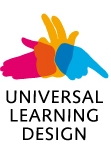In the past decades the primary focus for integration of students with disability in higher education has been placed on "the perspective of accessibility". The perspective of accessibility is naturally important, but it is a perspective which emphasizes accessibility in relation to the physical surroundings, support of assistive technology and, according to the prevailing Social Model of disability, adapting the environment to the student with a disability. In my paper I shall propose a different perspective - a learning-oriented perspective developed at Aarhus University - where the emphasis is not only placed on physical and quantitative conditions but on educational qualitative conditions.
The combination of a general political insistence on "more candidates in shorter time", the commitment that candidates on all levels also must meet the general and specific academic requirements for quality prescribed in the Bologna Process framework for qualifications for the European Higher Education Area, and the equally strong political insistence that the diversity in higher education should reflect the diversity in the population, presents a enormous challenge.
The purpose of special needs educational assistance is to be able to complete the education similarly to other students. Special needs educational assistance should therefore not be separated from the educational program, from the "main-stream" educational and working methods, from the objective of each program as a whole, or from the intermediate objectives of the individual disciplines that the programs are composed of. The students must also be capable of relating to these academic methods critically, analytically, and comparatively. Furthermore, they should be able to document that they master the required knowledge and skills, for example in connection with exams and other forms of evaluation.
In other words; the inclusion of students with specific learning disorders in the tertiary education is successful, has reached it's final goal, when the students in question have acquired the relevant skills and qualifications for the program and are employable at the open labor market.
In my presentation I will briefly analyze the concepts of learning, disability approach, Bologna process as a basis for a display of the practice of support at Aarhus University for students with specific learning disorders, i.e. dyslexia and psychosocial disorders.









